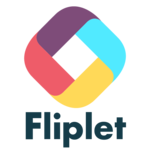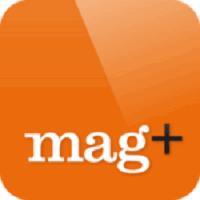Description

Fliplet

Pega 7 App
Comprehensive Overview: Fliplet vs Pega 7 App
Fliplet and Pega 7 App are platforms focused on app development and business process management, but they cater to different functions and markets. Here's a comprehensive overview of each:
Fliplet
a) Primary Functions and Target Markets
- Primary Functions: Fliplet is a no-code/low-code app development platform that empowers businesses to create customized mobile and web applications without extensive programming skills. It provides pre-built templates and drag-and-drop functionalities, making it easy for users to develop apps that can be used for various purposes including enterprise communications, events, operational efficiency, and training.
- Target Markets: Fliplet primarily targets non-developers in enterprises, including human resources, marketing, operations, and IT departments within medium to large organizations. Its solutions are versatile and can be adopted by businesses in a range of industries including legal, retail, healthcare, and education.
b) Market Share and User Base
- Market Share: As a niche player in the no-code/low-code market, Fliplet has a smaller market share compared to larger, more recognized platforms like OutSystems or Mendix but holds a strong position in certain sectors, particularly legal and professional services.
- User Base: Fliplet's user base is composed chiefly of enterprise teams who need efficient, quick app-building solutions without the heavy reliance on IT departments.
c) Key Differentiating Factors
- No-Code Emphasis: Fliplet strongly focuses on no-code capabilities, making app development accessible to non-technical users.
- Industry-Specific Solutions: Offers tailored solutions particularly beneficial for professional services like law firms.
- Ease of Use: Emphasizes simplicity in app design and deployment, allowing teams to quickly iterate and deploy apps.
Pega 7 App (Pegasystems)
a) Primary Functions and Target Markets
- Primary Functions: Pega 7 is part of the Pega Platform, which is a comprehensive suite for business process management (BPM), customer relationship management (CRM), and digital process automation (DPA). It focuses on improving operational efficiency, automating complex business processes, and enhancing customer engagement through intelligent automation and AI.
- Target Markets: Pega 7 targets large enterprises and multinational organizations that require robust, scalable solutions for process automation and customer engagement. It serves various sectors, including financial services, insurance, healthcare, government, telecommunications, and logistics.
b) Market Share and User Base
- Market Share: Pega is a well-established player in the BPM and CRM market with a significant global presence. It competes with companies like Salesforce, IBM, and Appian. Its sophisticated automation and AI capabilities have secured a strong market position.
- User Base: Pega 7's user base consists of large enterprises with complex operational needs, including IT and business analysts who look to optimize processes and customer experiences.
c) Key Differentiating Factors
- Scalability and Complexity: Pega 7 is known for handling complex workflows and large-scale automation with advanced features like case management and real-time decisioning using AI.
- Enterprise-level Customization: Allows for high levels of customization tailored to specific enterprise needs, supporting complex integrations and automations.
- Focus on AI and Data: Offers advanced AI and data analytics to enhance decision-making processes and improve customer interactions.
Comparison
- Technology and User Demands: While Fliplet focuses on simplifying app development for quicker deployment by non-developers, Pega 7 App is designed for comprehensive enterprise-level automation and enhancement of business processes.
- Target Audience Size: Fliplet caters to a niche market within enterprises, emphasizing quick deployment, while Pega targets large-scale corporations needing scalable, automated, and intelligent solutions.
- Market Niche: Fliplet serves specific industry needs with tailored apps, whereas Pega offers broad-based process automation across diverse industries.
In summary, both platforms have carved out distinctive niches in the app development and business management ecosystem, with Fliplet focusing on ease of use for non-technical users in specific industries and Pega 7 offering extensive capabilities for large-scale enterprise process automation.
Contact Info

Year founded :
2009
+44 20 3582 9720
Not Available
United Kingdom
http://www.linkedin.com/company/flipletapps

Year founded :
Not Available
Not Available
Not Available
Not Available
Not Available
Feature Similarity Breakdown: Fliplet, Pega 7 App
a) Core Features in Common:
-
Low-Code Development Platform: Both Fliplet and Pega 7 App are low-code platforms that allow users to create applications with minimal hand-coding, making it easier for non-developers to build apps.
-
Drag-and-Drop Interface: They offer drag-and-drop functionalities, enabling users to design interfaces and workflows intuitively.
-
Pre-Built Templates and Components: Both platforms provide a library of pre-built templates and components that users can utilize to speed up the app development process.
-
Integration Capabilities: They support integration with other systems and third-party services to extend the functionality of the applications developed on their platforms.
-
Responsive Design: Both tools ensure that applications are responsive and can be accessed from various devices, including desktops, tablets, and smartphones.
-
Collaboration and Version Control: They offer collaboration features that allow multiple users to work together on app development projects, along with version control to track changes.
b) User Interface Comparison:
-
Fliplet: Fliplet's user interface is highly intuitive and user-friendly, targeting business users and non-technical users. The design is clean, with a focus on ease of navigation and a straightforward approach to building apps. It emphasizes a visual approach to design and customization.
-
Pega 7 App: The user interface of Pega 7 might be perceived as more complex compared to Fliplet, as it is a more robust platform catering to enterprises. Pega 7 offers a more feature-rich environment suitable for building comprehensive business process management and CRM solutions. The interface is designed for users with some familiarity with process automation and offers detailed customization options for more complex applications.
c) Unique Features:
-
Fliplet:
- Focus on Mobile App Development: Fliplet specifically excels in providing solutions for mobile app development with offline capabilities.
- Content Management: It integrates well with content management needs, offering a more straightforward approach for incorporating media and dynamic content within applications.
-
Pega 7 App:
- Advanced Business Process Management (BPM): Pega 7 is renowned for its powerful BPM capabilities, allowing enterprises to automate and manage complex business processes.
- AI and Advanced Analytics: Pega 7 offers robust AI-driven decisioning and analytics, which help in creating applications that can adapt and make decisions based on real-time data.
- Enterprise-Grade Features: With features like customer relationship management and extensive scalability options, Pega 7 is more suited for large-scale, enterprise-grade deployments.
In summary, while both platforms offer low-code development and ease of use, Fliplet is tailored more towards simpler mobile app development with a strong focus on user experience, whereas Pega 7 is geared towards enterprises needing robust business process management and analytics capabilities.
Features

Publishing and Deployment
Collaboration Tools
App Development
Integrations

Integration Capabilities
User Interface
Data Management
Workflow Automation
Best Fit Use Cases: Fliplet, Pega 7 App
Fliplet and Pega 7 App are both robust platforms but cater to different needs and use cases. Here's a breakdown of where each might be the best fit:
a) Fliplet
Types of Businesses or Projects Best Suited for Fliplet:
-
Small to Medium Enterprises (SMEs): Fliplet is particularly attractive for SMEs due to its cost-effectiveness and ease of use. Its user-friendly interface allows businesses without extensive IT resources to develop mobile apps.
-
Internal Business Apps: Organizations looking to develop internal apps such as employee portals, communication platforms, or event management tools can benefit from Fliplet’s capabilities.
-
Rapid Prototyping and Deployment: Businesses needing to quickly prototype and deploy apps for specific events or campaigns will find Fliplet beneficial due to its drag-and-drop features and pre-built templates.
-
Non-Technical Users: Fliplet is designed with a focus on enabling non-technical users to create apps without needing to write code, making it ideal for departments like marketing and HR who want to build their own solutions.
Industry Vertical Suitability:
- Education: Schools and universities can use Fliplet to create educational apps without large IT departments.
- Healthcare: Development of non-critical process apps such as appointment scheduling or patient feedback collection.
- Events Management: Creating apps for conferences, exhibitions, or trade shows.
b) Pega 7 App
Scenarios Where Pega 7 App Would Be Preferred:
-
Large Enterprises: Pega 7 is ideal for large organizations that require complex, scalable enterprise solutions. It is built to handle extensive business processes and workflows.
-
Complex Workflow Automation: When businesses need to automate and enhance intricate workflows, Pega 7's sophisticated rule-engine and process management capabilities are highly advantageous.
-
Regulated Industries: Industries like finance, insurance, and healthcare, which require strict regulatory compliance, can leverage Pega 7's ability to handle complex case management and ensure compliance.
-
Customer Engagement Solutions: Companies focused on improving customer experience through personalized, integrated service and marketing solutions can benefit from Pega 7’s CRM capabilities.
Industry Vertical Suitability:
- Financial Services: Banks and insurance companies can utilize Pega 7 for customer management, risk assessment, and regulatory compliance.
- Healthcare: For managing complex patient care workflows and ensuring regulatory compliance.
- Telecommunications: Automating customer service and operational processes for better efficiency.
c) Catering to Different Industry Verticals or Company Sizes:
Fliplet:
- Industry Verticals: Primarily suited for industries where quick, user-driven app development is needed without deep technical expertise. This includes education, hospitality, and small-scale retail.
- Company Sizes: Best for small to medium-sized firms where IT resources are limited and where business users drive app creation.
Pega 7 App:
- Industry Verticals: Tailored for industries needing intricate process management, regulatory compliance, and customer interaction systems, such as finance, insurance, and telecommunications.
- Company Sizes: More suitable for large enterprises and multinational corporations where scale, complexity, and integration with other enterprise systems are crucial.
Both platforms serve distinct needs with Fliplet being more straightforward and quicker to deploy for simpler applications, whereas Pega 7 is best for large-scale, complex enterprise solutions that require robust process automation and regulatory compliance.
Pricing

Pricing Not Available

Pricing Not Available
Metrics History
Metrics History
Comparing teamSize across companies
Conclusion & Final Verdict: Fliplet vs Pega 7 App
Conclusion and Final Verdict for Fliplet vs Pega 7 App
After evaluating both Fliplet and Pega 7 App across various dimensions such as cost, functionality, scalability, ease of use, and support, we can offer a comprehensive conclusion and verdict.
a) Which Product Offers the Best Overall Value?
Fliplet is often recognized for its intuitive design and user-friendly interface, making it highly accessible for businesses needing a quick and cost-effective way to deploy mobile and web applications. It provides excellent value for businesses that prioritize rapid development without a steep learning curve, as it offers a wide range of customizable templates and tools that cater to non-developers.
Pega 7 App, on the other hand, excels in environments where complex workflows and automation processes are paramount. Its ability to integrate with existing enterprise systems and provide robust, scalable solutions makes it a valuable choice for large enterprises seeking comprehensive case management and process automation.
Final Verdict: For small to medium-sized businesses or teams focused on fast implementation and ease of use, Fliplet offers better overall value. For larger enterprises requiring extensive customization, scalability, and integration with existing systems, Pega 7 App is the superior choice.
b) Pros and Cons of Each Product
Fliplet
-
Pros:
- User-friendly and requires minimal coding knowledge.
- Cost-effective for small to mid-sized projects.
- Rapid development and deployment of applications.
- Extensive library of templates and tools.
- Strong focus on customer support and community resources.
-
Cons:
- Limited scalability for highly complex enterprise applications.
- May lack depth in enterprise-level integrations and automation features.
- Customization options may be restricted compared to more developer-intensive platforms.
Pega 7 App
-
Pros:
- Robust platform for business process management (BPM) and case management.
- Highly scalable and capable of complex enterprise integrations.
- Strong support for automation and AI-driven processes.
- Customization flexibility for advanced users and developers.
- Extensive documentation and training resources available.
-
Cons:
- Steeper learning curve, generally requiring more technical expertise.
- Higher initial and operational costs due to extensive features.
- Longer deployment times compared to platforms focused on rapid development.
c) Recommendations for Users Deciding Between Fliplet and Pega 7 App
-
Assess Your Business Needs:
- If your business primarily needs to create straightforward applications quickly with minimal coding, Fliplet is the ideal choice.
- Choose Pega 7 if your organization requires robust BPM and enterprise-grade scalability and integration capabilities.
-
Consider Resource Availability:
- If your team has limited technical skills, consider Fliplet for its ease of use.
- For teams with access to skilled developers or IT infrastructure, Pega 7 will enable more complex customizations.
-
Evaluate Cost vs. Benefit:
- Budget constraints and project scope will heavily influence the choice. Fliplet allows for cost-effective solutions without a heavy upfront investment.
- Pega 7 is generally a considerable investment, justifiable for projects needing complex systems and extensive automation.
-
Long-Term Vision:
- Choose Fliplet for quick returns and short-term projects or proof of concepts.
- Opt for Pega 7 if planning long-term, large-scale digital transformation projects that demand a high degree of customization and integration.
By considering these factors, users can make an informed decision based on their specific needs, technical capabilities, and budget constraints.
Add to compare
Add similar companies



